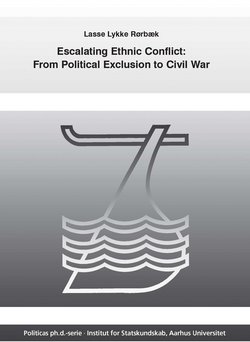Lasse Lykke Rørbæk
Escalating Ethnic Conflict: From Political Exclusion to Civil War

This dissertation investigates how ethnic conflicts escalate. It proposes a simple, sequential argument according to which political exclusion of ethnic groups leads to anti-government mobilization and violent repression, thereby increasing the risk of civil war. The argument is assessed empirically through four studies using quantitative cross-sectional analyses at the country and group level as well as case studies examining the underlying conflict processes. The results show that ethnic exclusion increases the level of state violence in a country, which, in turn, leads to higher probability of armed resistance. Ethno-political struggles often evolve into civil war following this path, and the escalation process is not conditioned on whether ethnic groups are mobilized based on a shared religion, language, race, or regional belonging. The studies also raise a number of questions and suggest some limitations to the theoretical argument. In particular, the case studies show that the political exclusion-civil war relationship is troubled by reverse causality and war recurrences that are not directly caused by groups’ discrimination-based grievances. The dissertation thus suggests a need to specify the scope under which ethnic conflict escalation is likely to occur and proposes a number of avenues for further research.
![]() Ophavsretten tilhører Politica. Materialet må ikke bruges eller distribueres i kommercielt øjemed.
Ophavsretten tilhører Politica. Materialet må ikke bruges eller distribueres i kommercielt øjemed.